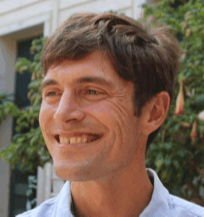Dr. Francis Macdonald, UCSB, will be presenting



During the Miocene climatic optimum, ~17-14 million years ago, the Earth was warmer than today, and the Antarctic icesheet was the smallest it has been over the past 35 million years. This interval is an excellent analog for proposed scenarios of future climate change, and yet there is little understanding why it was warmer and why, wiggles aside, the Earth has cooled over the past 14 million years. Exposures of the Monterey Formation along the Santa Barbara Coast provide a natural laboratory for investigating Miocene climatic change and organic carbon production and preservation. Particularly, the Monterey hypothesis proposes that massive productivity and burial in the Monterey Formation and equivalent Miocene deposits in the eastern Pacific sequestered organic carbon and drove cooling. This hypothesis was advanced with data from exposures of phosphatic black shales on the Santa Barbara coast; however, due to a paucity of precise geochronological constraints, the timing and magnitude of enhanced carbon preservation in the Monterey Formation relative to global climate change has remained uncertain. In this talk, I will present over 24 new U-Pb zircon dates on volcanic ashes sampled from measured stratigraphic sections of the Monterey Formation. These data demonstrate that the most organic-rich members of the Monterey have the lowest sedimentation rates and are the most condensed, reflecting organic carbon preservation rather than productivity. Both the timing and magnitude of organic carbon accumulation in the Monterey Formation are inconsistent with the Monterey hypothesis. I will end the talk discussing alternative hypotheses for long-term climate change that have been developed at UCSB, particularly that cooling over the past 14 million years is due either to a decrease in mid-ocean ridge spreading rates or an increase in global weatherability associated with arc-continent collisions in SE Asia.
Francis Macdonald is a Professor of Geology at UCSB. His research focuses on the interactions of tectonics, climate, and biological evolution through Earth history. This work begins with geological mapping, and uses stratigraphic analysis, isotope geochemistry, geochronology, paleomagnetism, and paleontology to reconstruct paleoenvironments and tectonic histories. Recent projects have focused on geological drivers for long-term climate change, Snowball Earth, the Great Unconformity, and the tectonic evolution of North America and Central Asia. Macdonald was awarded the GSA Young Scientist Award (Donath Medal) in 2014 and the AGU Early Career Award (Macelwane Medal) in 2019. He holds a B.S. in Geology from Caltech and a Ph.D. in Geology from Harvard University.